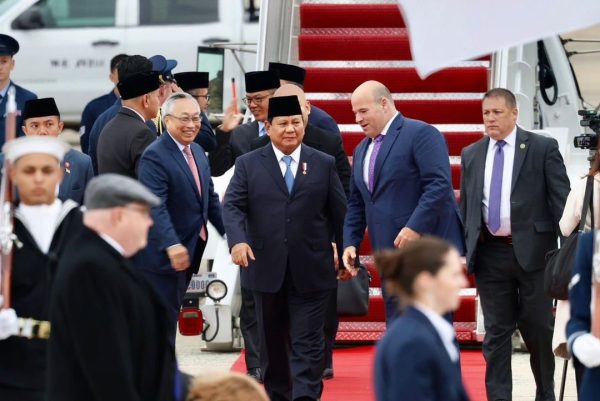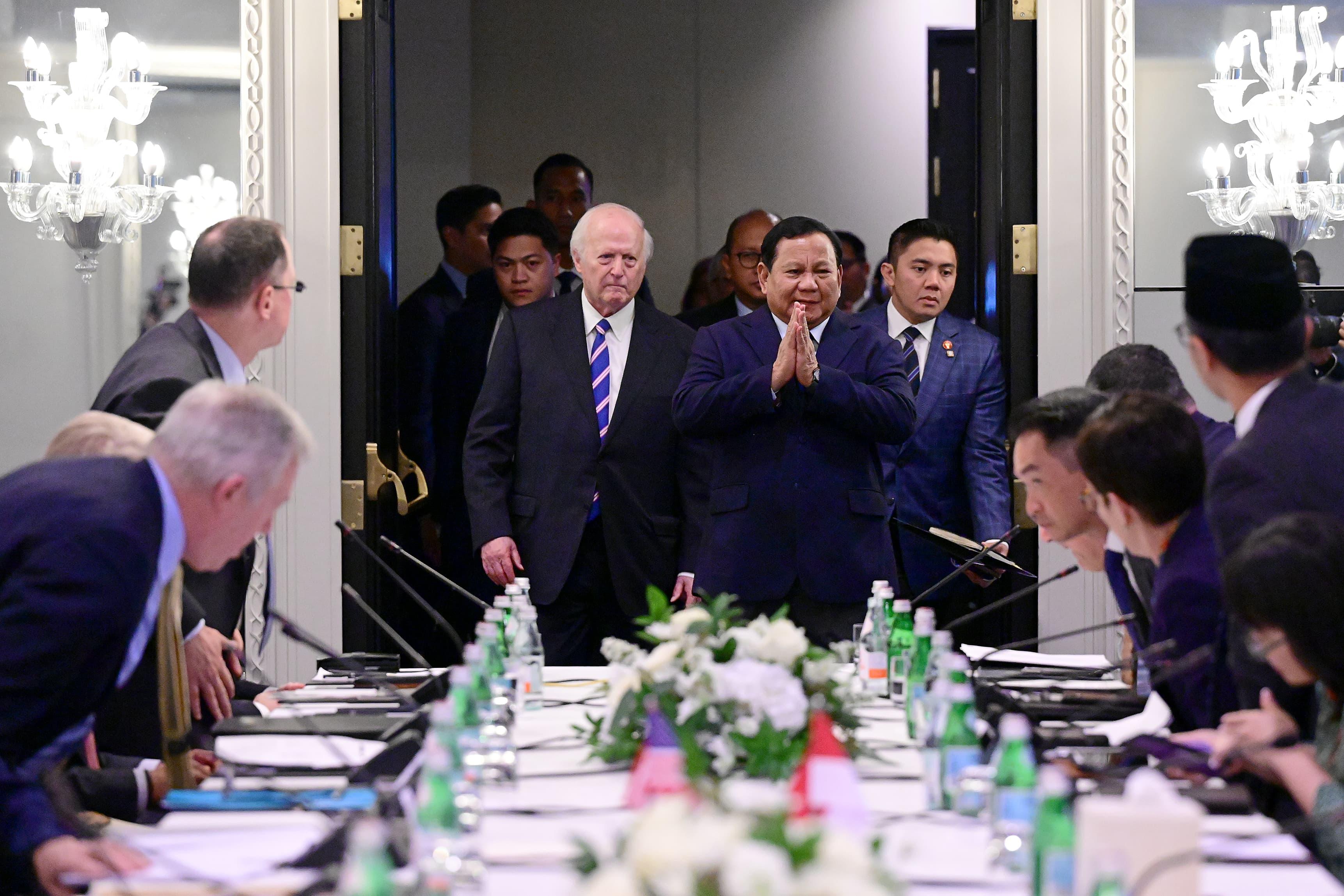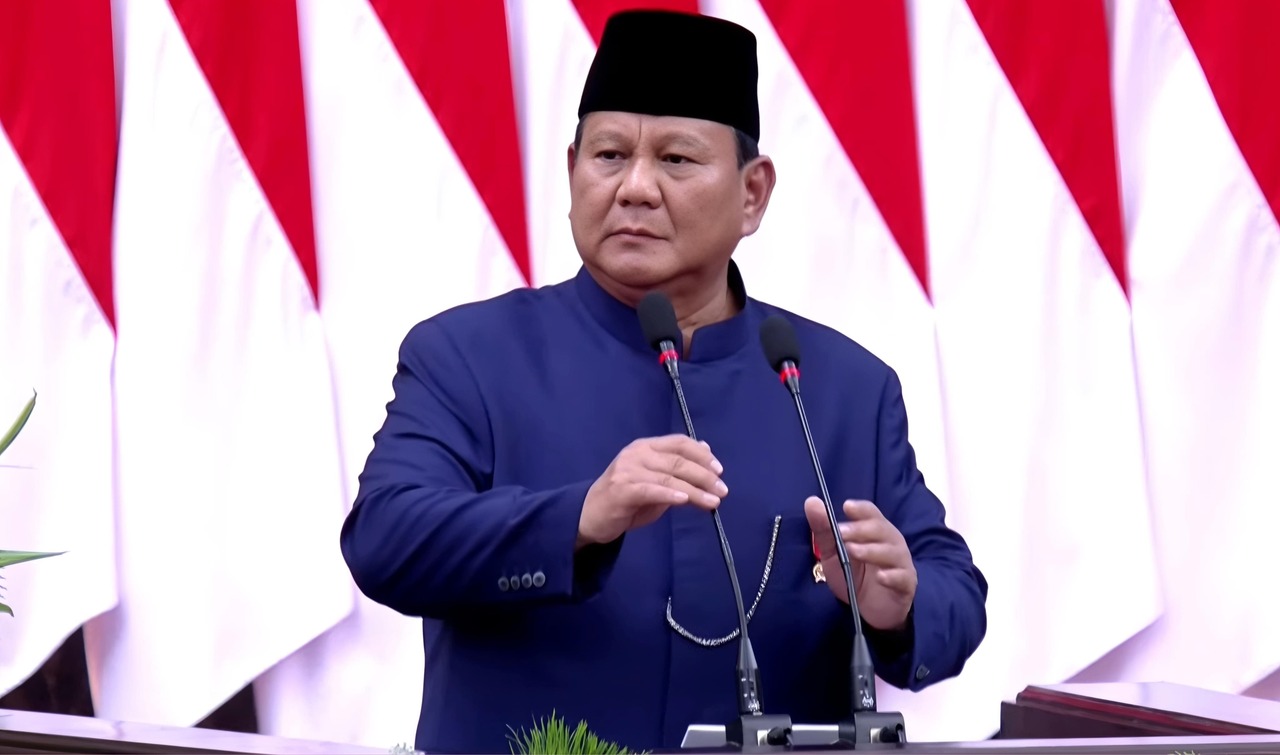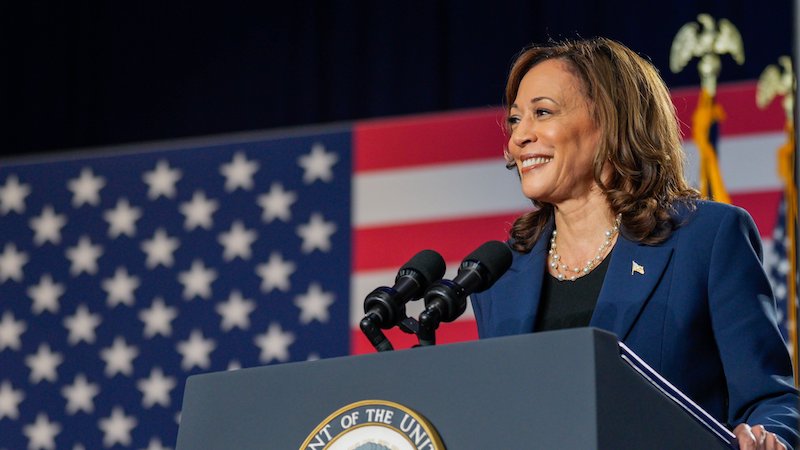



/tpg%2Fcb16a7d1-e6c8-4876-a0bb-a2c4320ea268.jpeg)


Indonesian President Prabowo Subianto's recent diplomatic efforts have taken center stage as he embarks on a global tour aimed at strengthening Indonesia's international relationships. His first official overseas trip to China on December 25, 2024, coincided with his earlier engagements with U.S. President Joe Biden and Chinese President Xi Jinping in November [32d03b7c]. During the China visit, a joint statement was released that called for 'joint development in areas of overlapping claims' in the South China Sea, raising concerns about Indonesia's sovereignty and its established positions regarding territorial disputes [32d03b7c].
Prabowo's meeting with Biden on November 12, 2024, focused on advancing a 'free and open Indo-Pacific,' with discussions on climate change and security issues. Biden congratulated Prabowo on his election victory, while Prabowo reciprocated by congratulating Biden on his recent electoral success [6ef75709].
In his earlier talks with Xi on November 9, 2024, significant agreements were reached, including a Memorandum of Understanding on Blue Economy Cooperation aimed at sustainable marine resource management. China also pledged support for Indonesia's ambitious free meal program for 83 million schoolchildren, projected to cost over $27 billion annually by 2029 [971b557d].
Despite the collaborative tone of joint statements, Indonesia's Foreign Ministry reiterated its non-recognition of China's claims in the South China Sea, highlighting the delicate balance Indonesia seeks to maintain between its relations with the two powers [971b557d]. Prabowo's administration aims to improve Indonesia's economic situation while navigating the complexities of U.S.-China relations. His engagements with U.S. corporate leaders in Washington emphasized the importance of American investment in Indonesia's renewable energy sectors, such as carbon capture and geothermal technology [4497a8ff].
As Indonesia positions itself as a critical player in Southeast Asian geopolitics, analysts have expressed concerns regarding its sovereignty and alignment with China's positions, particularly in light of ongoing tensions in the South China Sea [971b557d]. Prabowo's hands-on approach to diplomacy has sparked discussions about the challenges Southeast Asian leaders face in balancing nationalistic positions while engaging with China [32d03b7c].
Furthermore, Prabowo's administration is expected to enhance Indonesia's diplomatic role in the Muslim world, solidifying its position as a regional leader. The U.S. could benefit from Indonesia's vast resources, especially in critical minerals like nickel, essential for the electric vehicle supply chain, thereby reducing dependency on China for these materials [8557365a].
As Indonesia navigates its role on the global stage, the Prabowo Administration must strategically align its policies to anticipate changes in U.S.-Indonesia relations, particularly under the potential presidency of Kamala Harris. This alignment will be crucial for fostering a mutually beneficial partnership that addresses economic, defense, and environmental priorities [8bc35ca2].
In summary, Prabowo's diplomatic balancing act reflects Indonesia's aspirations as a regional trade hub while navigating U.S.-China tensions. The public response to his engagements has been largely supportive, with Indonesia aiming for an ambitious 8% economic growth [29b6395e].